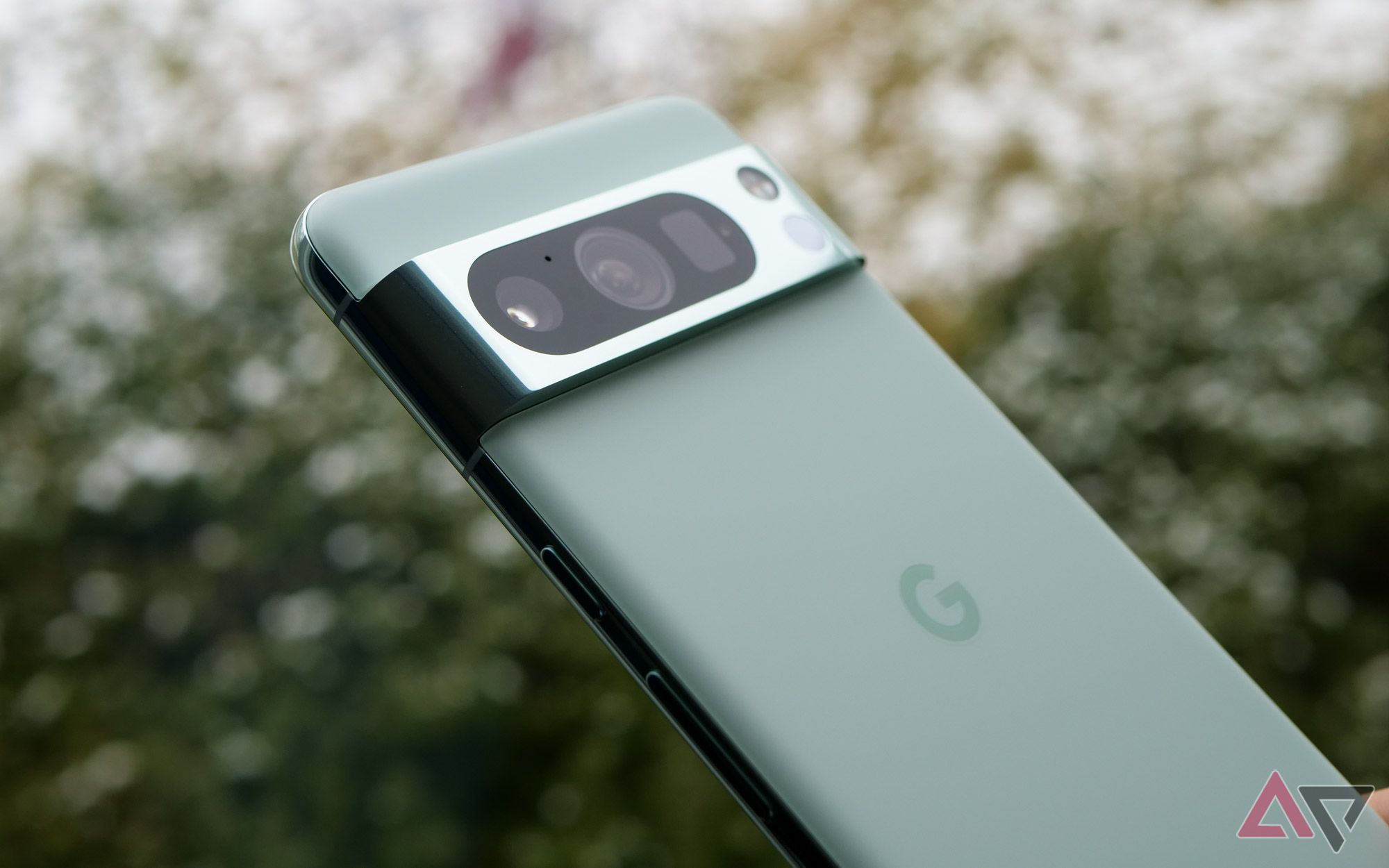If there’s one thing Google loves in this world, it’s surprises. If there’s a second thing Google loves in this world, it’s moving around the release schedule for the Pixel A-series (or, you know, messaging apps — let’s call it a draw). Rather than holding the Pixel 8a back for I/O, the company officially unveiled its latest smartphone last week, opening preorders ahead of a May 14 launch.
Although I’m not ready to offer a full review just yet, after a few days with the phone, I can say for sure that I’m impressed. That doesn’t mean I’m ready to recommend it, though. Let me explain.
Google’s Pixel hardware has had a rocky few years
And Android users deserve stability and reliability
I have, let’s say, a complicated relationship with Pixel phones. On one hand, Google undoubtedly makes my favorite smartphones on the market and has for nearly a decade. I still remember how excited I was to unbox my Pixel 2 XL in 2017, how underappreciated the Pixel 5 felt, and how much I loved seeing that initial Pixel 6 design that has carried on to today. And since becoming Phones Editor at Android Police, I’ve reviewed no less than four Pixels over eighteen months, with the Pixel 8a destined to become my fifth later this week. Discounting the rocky first-gen Pixel Fold, I’ve given them all prettypositivereviews.
But I also use these phones as daily drivers long after the review period ends, and I’m browsing the same subreddits as you are. I hear the constant complaints surrounding the Pixel experience, especially in the Tensor era. Sluggish performance, overheating, buggy or late software upgrades — it never ends. And yet, for all of Google’s problems, some people are lucky enough to dodge and weave past every issue, no matter how widespread. It makes reviewing these phones more frustrating than any other device on the market.

Google’s inconsistent Pixel experience makes its phones impossible to recommend
Three generations into the Tensor experiment, the time has come to stop making excuses for Google’s buggy software
I wrote about my Pixel 8 Pro problems earlier this year, and how random bugs make it difficult to know the experience that you, the reader, will get when you pick up the phone. It’s a lot of baggage to enter a review period with, and yet, it’s all that was on my mind when I unboxed my very own Pixel 8a last week. If I have a good time with this device, how do I know you’ll get the same results? And if I have a bad time with this device — as I initially did with last year’s Pixel 7a and some very odd battery drain issues — how will anyone know if that’s a universal problem?
Just get to the Pixel 8a impressions, please
Concerns aside, my time with this device has been great
I love this phone. It’s certainly my favorite A-series hardware yet, and it’s even in the running for some of my favorite Pixel hardware; it feels so much better in my hand than the standard Pixel 8. There are some obvious downgrades, of course — the bezels surrounding the display might drive some people crazy, for example, although I stopped noticing them within a couple of hours — but there is so much to like about the compromises Google made to deliver this experience at $500, and that’s not something I expected to say.
For example, take the plastic back. The A-series has always relied on polycarbonate materials rather than glass for their outer casings, but this time, Google really outdid itself. The matte finish feels incredible in my hand; so much better than what’s on the regular Pixel 8. It’s as smooth as a stone — and, as you might expect, as slippery. Still, it’s a smartphone you want to hold, and that’s only accented by the rounded corners and matte metal band, the latter of which help to add some grip. Today’s glass-and-metal bricks can often be so exhausting to grip, but with the Pixel 8a, it just feels right resting in my palm.
In fact, I’d go as far to say I like the feeling of the matte plastic back here more than the matte glass seen on the Pixel 8 Pro last year. My model, seen here in its Shamrock Shake-esque Aloe shade, is practically smudgeless, no matter how much I drag my fingers along the back. Even among other devices with matte finishes, this is the least fingerprint-friendly hardware I’ve seen in some time. From here on out, matte-everything, please.
While the bezels might be unchanged from last year, the screen most definitely is not. Google gave this year’s A-series panel the same Actua branding as the Pixel 8, with matching peak and HDR brightness levels as the company’s $700 flagship. The Pixel 7a’s panel last year was a noticeable downgrade from the Pixel 7, but this year, colors seem well saturated and viewing angles are solid, with just a hint of shimmer when rotating the phone from side to side. It’s not the best panel you’ll find for $500, but it’s good, and that’s all that really matters.
Performance is great, too. I’ve felt the phone get noticeably warm in my hands just twice now: once during initial setup while charging the phone, the other while browsing the web with a video playing picture-in-picture (the latter example seems to be a fluke, as it hasn’t happened again under similar circumstances). Tensor G3 absolutely runs cooler than its predecessor, and it’s much more efficient too. I’m ending days of mixed-to-heavy use with 30 to 40 percent left on a charge, and although I’d love to tell you what my screen-on time is like, some bug rendered my first couple of battery tracking days useless. Hey, there’s those pesky bugs again.
I don’t have much to say about its camera yet, though, which feels rare for a Pixel device. Google utilized the same sensors as last year’s smartphone — which, in my opinion, take the best photos you’ll find on a phone this cheap so long as you don’t try to max out your digital zoom. Post-processing seems identical to last year as well, which, again, isn’t necessarily a bad thing. If you like the look of Pixel-produced photos, you’ll like most of the shots you get from this phone.
But shouldn’t I just buy the Pixel 8?
A simple question with a different answer than you might expect
I’ve seen this sentiment a lot, largely spurred on by a sale Google seemingly forgot to end prior to the announcement of the Pixel 8a last week. Everyone from Android Police commenters to Marques Brownlee himself has pointed at the discounted Pixel 8 as the obvious choice. And, yes, for $50 more, the Pixel 8 is probably the better buy. Although the specs sheets for these two phones are closer than ever, you do get faster charging speeds, slimmer bezels, and better glass covering the display.
But I just don’t think it’s as simple as some people are making it out to be. First and foremost, the Pixel 8 is no longer on sale, so if you’re shopping for a phone right now, choosing Google’s latest midrange offering is the obvious pick. But beyond that, it’s worth remembering that the Pixel 8a is going to go on sale with the same frequency as the Pixel 8. If the latter drops to $550 — or even $500 — on, say, Prime Day, you’re likely going to see this phone as low as $400.

5 things Google changed on the Pixel 8a compared to the Pixel 8
Google’s Pixel 8a is a nerfed version of the Pixel 8, but is it really worth paying $200 more for the original
I’ll have more to say on this in the full review, but for now, my advice on picking between the Pixel 8 and the Pixel 8a is just to buy the one that’s on sale when you’re shopping for a new phone. If the regular Pixel 8 is on sale and this phone isn’t, the choice is obvious, no matter how much I might like the matte plastic Google used on this model.
We’ll have lots more to come on the Pixel 8a
Our full review lands later this week
This was a particularly tight deadline, meaning I don’t feel like I’ve had the phone long enough to nail down my thoughts quite yet. Tie in our Google I/O coverage — if you’re reading this as soon as it goes live, I’m quite literally on a flight headed to San Jose — and it all adds up to having to wait a little bit longer for a complete picture on the Pixel 8a.
Still, I think these impressions do a good job showing where my head is at, both on this phone and on Pixel hardware at launch. I want to love these phones unabashedly — especially this one — but right now, I still have that shred of concern lingering in the back of my head. How I’ll fold that into a timeless, evergreen review of a smartphone? I’ll let you know when I figure that out.
In the meantime, if you have any questions about the Pixel 8a ahead of AP’s full review, shout them out in the comments. I’ll do my best to answer them once my (very jet lagged) feet touch down in Mountain View.

Google Pixel 8a
The Pixel 8a wants you to forget the Pixel 8 ever existed. With some crucial upgrades over its predecessor, including a brighter display, faster processor, and larger battery, Google’s latest mid-range smartphone is the perfect combo of speed and AI smarts. And with seven years of OS upgrades, it’s the longest lasting $500 smartphone you can find today.









